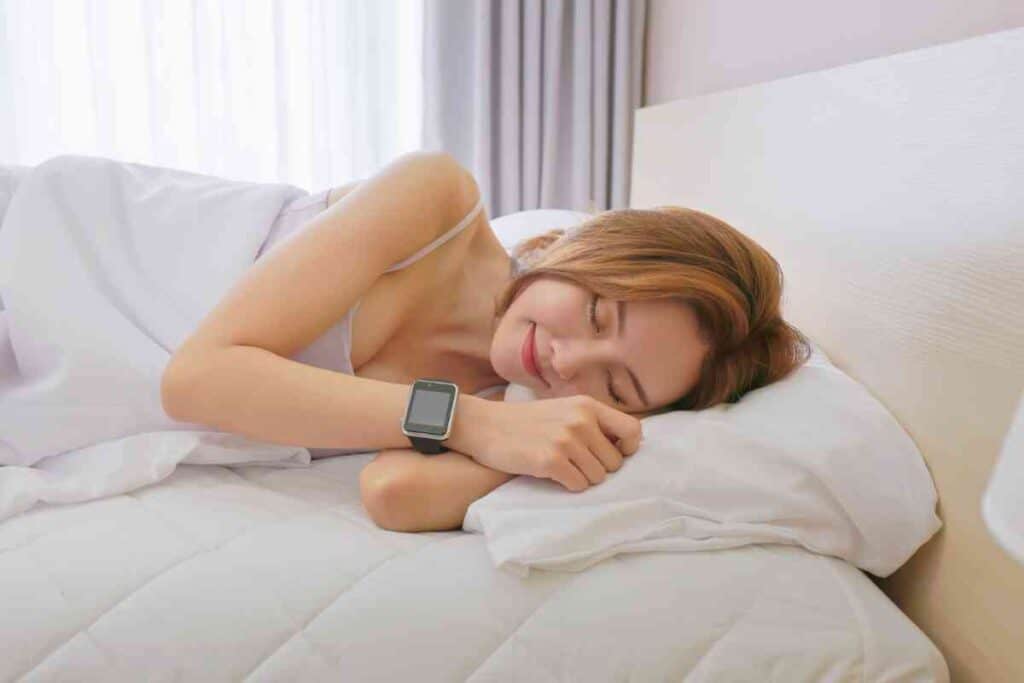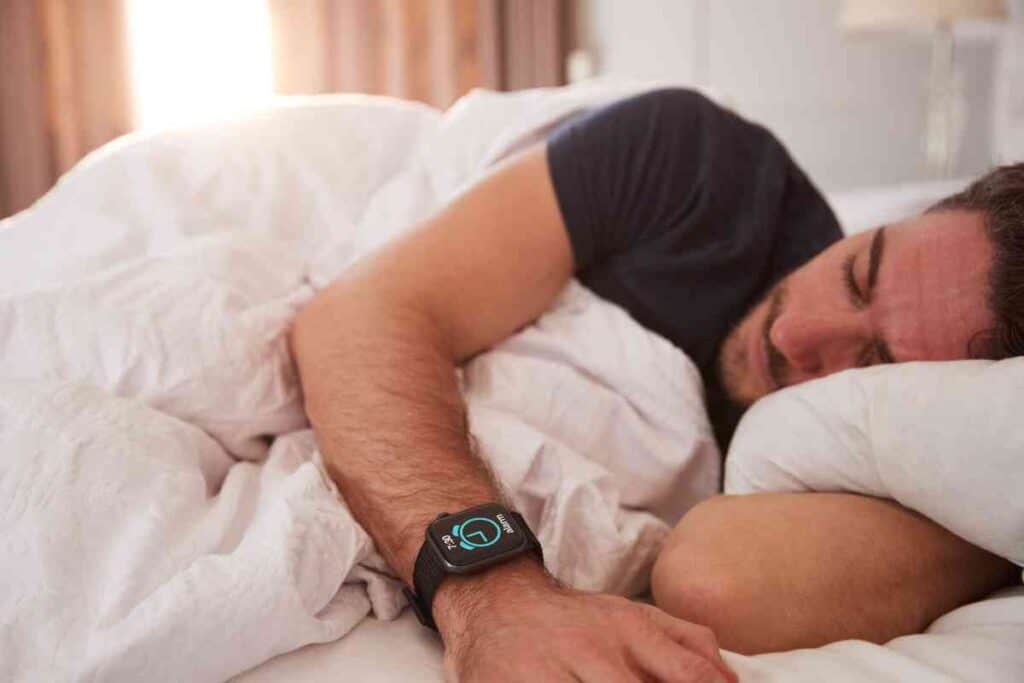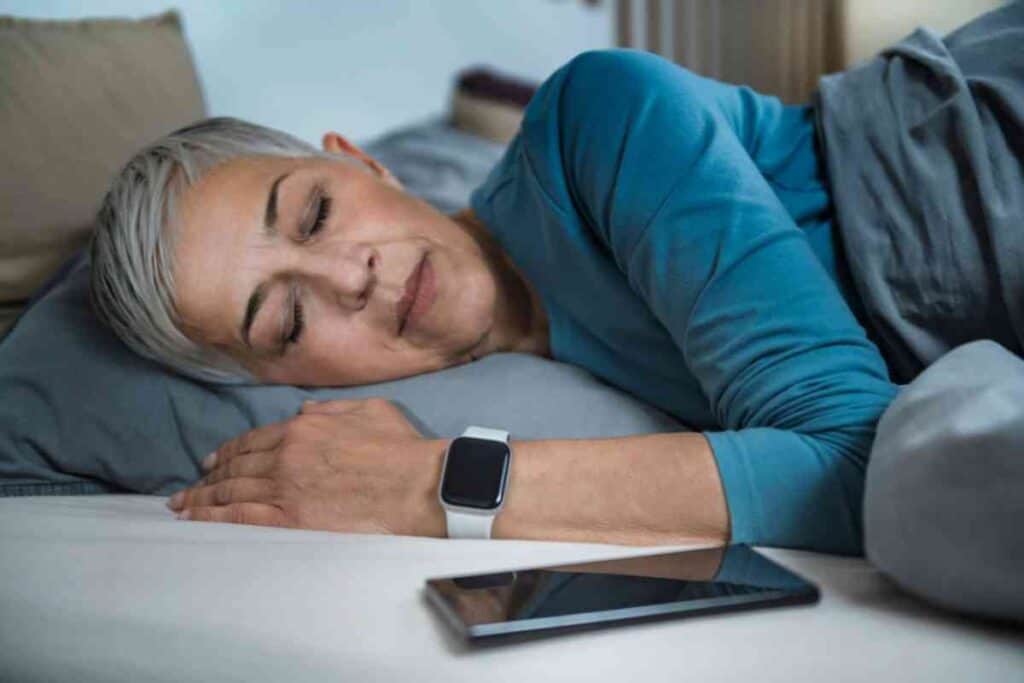Why Does Fitbit Say I Was Awake? Solved!
It can be frustrating when your smartwatch isn’t working how it’s meant to. So why does Fitbit say I was awake when I was actually not?

Navigate the world of fitness technology seamlessly with our exclusive review of Fitbit models designed with women in mind.
Why Does Fitbit Say I Was Awake?
There are many reasons why Fitbit may indicate that you are awake when you are not, like affected algorithms, abnormal sleep habits, certain environmental factors, etc. It is crucial to understand the different factors at play for assessing how to address this issue.
One morning I woke up and found that Fitbit actually recorded activity while I was asleep. Naturally, it freaked me out, and I instantly called the company to see what was happening, and this was the answer I got:
If your Fitbit indicates that you were awake when you actually were not, there is a lengthy list of factors that can be to blame. For users to address this issue and improve the accuracy of their devices, they need to gain an understanding of the different factors at play here.
The first factor, and the one that has affected me a lot of times, is related to the algorithms that Fitbit devices rely upon.
The algorithm in Fitbit makes use of a combination of motion data, heart rate readings, and other sensor data to try to determine your sleep activity.
But sadly, this assessment can get affected by outside factors like using your device during the day or having a restless night. If any of these occur, it can cause issues with the tracking accuracy of the devices and ultimately its results.
Another factor is related to the sleep habits of the users.
Some individuals may have difficulty falling asleep right away, which impacts the accuracy of their sleep monitoring.
People who suffer from sleep apnea or other sleep disorders may also be affected with irregular sleep patterns that can cause the watch to take readings in an inaccurate manner.
And then come the environmental factors like noise and light. They can also affect the Fitbit tracking accuracy negatively.
If your bedroom is too bright or noisy, it more often than not interferes with the device’s potential to monitor your movements and heart rate through the night while your Fitbit constantly runs in the background.
When you know and understand why Fitbit may be indicating that you were awake when you actually were not, you get better poised to take measures for improving its accuracy.
I suggest you start by ensuring that you first address all and any environmental factors that may be at play so that there is no interference from outside sources throughout the night.
Ensure you follow a healthy sleep routine and address any underlying sleep disorders can help make sure the device is able to accurately track your sleep activity.
| Fitbit Saying You’re Doing Other Things You’re Not? |
| Here’s Why Your Fitbit Says You’re Swimming (When You’re Not) |
How Does Fitbit Know The Difference Between Restless And Awake?

Fitbit utilizes the movement of your body and heart rate to monitor whether you are asleep or awake. Your Fitbit uses an advanced algorithm to track and analyze your activity, sleep stages, heart rate variability (HRV), and respiration rate during all hours of the day.
When it comes to tracking activity, Fitbit relies upon both motion sensors and a heart-rate sensor to determine when you’re moving or not.
When combined with other parameters like HRV or respiration, these two sensors can accurately detect how much restlessness is present while in bed.
The combination of the motion and HRV data helps the tracker understand if you’ve been lightly sleeping, deeply sleeping, or have been lying still yet wide awake.
To measure your heart rate, Fitbit uses a combination of both green and infrared light to “illuminate” blood vessels in your wrist.
This is referred to as photoplethysmography (PPG) technology. As your heart beats, the PPG sensor detects changes in the amount of light being absorbed or reflected by your skin, allowing it to track pulse rate and HRV over time.
Respiration rate is also used during sleep tracking and helps to distinguish between different kinds of restlessness while you’re asleep versus when you’re awake.
Your respiration rate can be accurately tracked using the built-in 3D accelerometer on your Fitbit. It measures the minute movements in your chest or abdomen created as you inhale and exhale.
Tracking sleep with a Fitbit is accurate and reliable. It’s able to differentiate between light sleep, deep sleep, and periods of restlessness, giving you an overall picture of how well-rested you are at any given time.
With this data on hand, you can make informed decisions about the quality of your sleep and take steps to improve it if necessary.
Can Fitbit Detect Sleep Apnea?

The answer is yes. Fitbit devices use advanced technology and algorithms to monitor your sleep patterns and heart rate variations during the night.
If I may give you an example, one of the most common signs of sleep apnea is pauses in breathing during the night.
By monitoring changes in your heart rate or pulse oximetry levels (oxygen saturation) during these pauses in breathing, Fitbit devices may be able to detect these irregularities and alert you to the possibility of sleep apnea.
Fitbit also offers a built-in sleep score feature that uses your sleep data to calculate an overall score for the quality of your sleep. This score takes into account factors like total time asleep, restlessness during the night, and how often you wake up.
Is Fitbit Accurate For Sleep?

The accuracy of Fitbit for sleep tracking has been a point of discussion for years. While the device’s ability to track and quantify different aspects of sleep patterns is impressive, there have been concerns raised about how accurate the data it provides is.
Fitbits use an accelerometer to measure movement in order to detect when you are asleep or awake and provide basic sleep metrics like your total amount of time spent sleeping and how often you wake up throughout the night.
It can also track light, deep, and REM cycles as well as other important factors like heart rate variability (HRV).
It is vital for users to take any data provided by a Fitbit with a grain of salt and understand that it is simply an estimate based on movement.
It should never be used as an absolute indicator of actual sleep quality and should be considered in conjunction with other factors, like how you feel during the day.
Key Takeaways
- Fitbit can say you’re awake when you aren’t due to its algorithms.
- These algorithms can be affected by outside influences.
- Another factor that can cause it is related to your sleeping habits.
- Environmental factors, like noise and light can also cause that.
- Fitbit uses your body movement and heart rate to monitor sleep.
